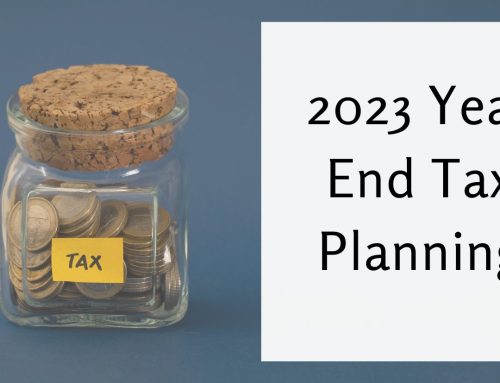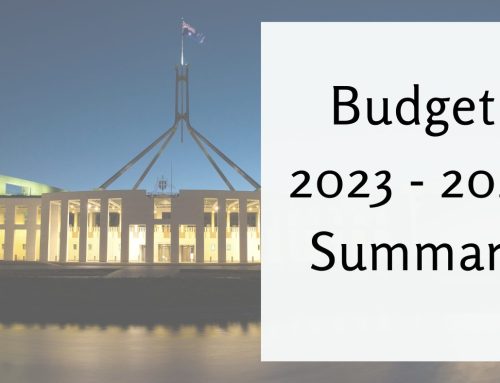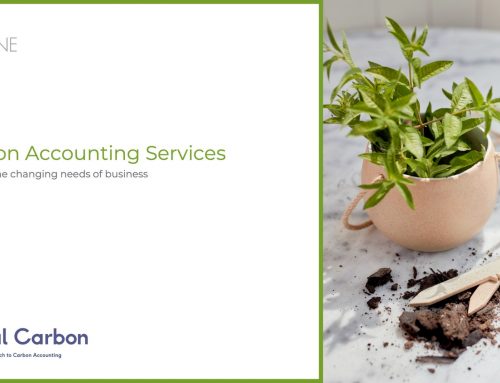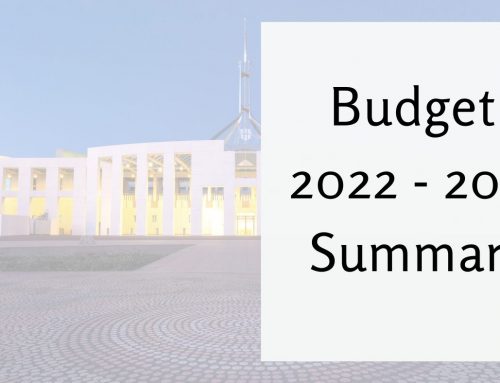As another financial year comes to an end, it is important to review the business operating position for the year to determine the extent of the profit or loss. It is also important to consider the following tax planning options to ensure that you minimise your tax obligations.
1. Defer Income
Do not render accounts earlier than necessary. In deferring income, it is imperative that you have regard to your cash flow circumstances and make sure that any deferral of income is not going to have a major impact on your cash flow.
2. Stock And Inventory
Stocktakes should be conducted on 30 June each year (or as close to 30 June each year). This will give you an exact amount of stock being held. The stocktake can assist in minimising tax through:
- Identifying osbsolete and worthless stock items
- Choosing a tax valuation method that will give you the best possible tax outcome
3. Bad Debts
Review your debtors listing prior to the end of the financial year and where there are bad debts, write these bad debts off prior to 30 June.
To obtain a tax deduction for a bad debt the following conditions must be satisfied:-
- The amount owed must have been included assessable income in the current or a former tax year
- The debt must exist at the time of writing off
- The debt must be bad; and
- The debt must be written off as a bad debt during the income year in which the deduction is claimed.
When assessing whether a debt is a bad debt, we advise that the ATO would take into account the following factors:
- The age of the debt
- Recovering attempts and whether they are continuing
- Whether there is continuing trading with the debtor (and if so, whether the tading terms have been changed such as to cash on delivery)
- Whether payment arrangements have been entered into and whether any payments have been received since declaring the debt bad
- The bad debt policy of the business
We recommend that a minute be prepared to document the writing off of any debt as bad and that this be minuted prior to 30 June.
4. Bonuses To Staff/Employees
An outgoing is incurred when the business is “definitively committed” or “completely subjected” to the expense or outgoing.
If paying bonuses to staff/employees then, in order to be able to claim a tax deduction in the current year you must be definitively committed. To claim a deduction you would need to:
- Be able to quantify the bonus payable on or prior to 30 June
- Advise staff/employees of their bonus entitlements on or prior to 30 June in writing of the bonuses that they will receive
5. Depreciation
If business turnover (gross) is greater than $2.0m per annum then:
- Assets under $1000 can be placed in a low value pool and depreciated at 18.75% in the first year and 37.5% in subsequent years using the Diminishing Value Method.
- Assets costing $1000 or more will be depreciated based on their effective lives and whether you choose the Diminishing Value Method or the Prime Cost Method. [Note: Diminishing Value Method rate = Prime Cost Method x $200].
If business turnover is less than $2.0m and you are a Small Business Entity the following depreciation rules apply:
- Up to 31 December 2013 you can claim an immediate write off for depreciating assets costing less than $6500
- From 1 January 2014 you can claim an immediate write off for depreciating assets costing less than $1000.
- You can elect to use a General Small Business Pool and claim a depreciation deduction of 15% for assets acquired in the current financial year and 30% for assets that were held throughout the tax year.
Prior to 30 June:
- Review what is included and excluded from the depreciation pools
- Review effective lives of asets to ensure that the depreciation rates are being maximised
- Review depreciation schedules for any plant and equipment (depreciable assets) that no longer exist or no longer work.
6. Deductibility Of Superannuation Contributions
An employer is only entitled to a deduction for superannuation contributions where the employer physically makes the payment on or before 30 June.
Where the employer and the employee receiving the contribution are related parties then the contribution must be received by the employee’s superannuation fund on or before 30 June. As such, if electronically transferring the contribution, the transfer must be received by the Superannuation Fund on or before 30 June. If paying by cheque, the cheque must be received by the trustees of the Superannuation Fund on or before 30 June.
Given that the June quarter’s SGC contributions must be paid on or before 28 July, we would recommend that you pay the employees’ superannuation contributions prior to 30 June to obtain a tax deduction.
7. Small Business Entities
If you have a turnover of less than $2.0m per annum (including related parties) then you are eligible to be classified as a Small Business Entity (SBE). A SBE may:
- Claim a deduction for prepayments. As such, you may wish to consider prepaying certain expenses for up to 12 months inadvance subject to cash flow.
This is particularly attractive where a related party owns the business premises. If you do own the business premises, then you should also consider whether you are able to transfer the business premises into a self-managed superannuation fund.
Should you wish to discuss any aspect of this or any other matter, please contact our office on 03 9626 1433
If you have a turnover of less than $2.0m per annum (including related parties) then you are eligible to be classified as a Small Business Entity (SBE). A SBE may:
Claim a deduction for prepayments. As such, you may wish to consider prepaying certain expenses for up to 12 months inadvance subject to cash flow.
This is particularly attractive where a related party owns the business premises. If you do own the business premises, then you should also consider whether you are able to transfer the business premises into a self-managed superannuation fund.
Should you wish to discuss any aspect of this or any other matter, please contact our office on 03 9626 1433





